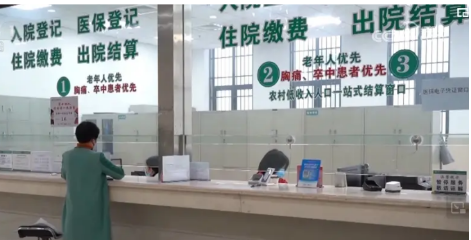New Data Provide Treatment Insights into Options for Switching Adult Patients Diagnosed with Schizop

- As a leader in neuroscience, Teva remains committed to helping address unmet needs in the treatment of schizophrenia through scientific and clinical advances that support optimal treatment options and decisions for patients and HCPs
- New data demonstrate switching to UZEDY at four weeks after the last dose of once-monthly RBP-7000 provided the most comparable pharmacokinetic (PK) profile based on relevant simulations, with comparable doses identified
- New ADVANCE survey findings highlight key patient-reported reasons for accepting long-acting injectable treatment options, including improvement of symptoms/condition, recommendation by a HCP, and ease of use data
TEL AVIV, Israel and PARSIPPANY, N.J., Sept. 21, 2024 (GLOBE NEWSWIRE) -- Teva Pharmaceuticals, a U.S. affiliate of Teva Pharmaceutical Industries Ltd. (NYSE and TASE: TEVA), today presented data informing clinical strategies for switching patients to UZEDY®, an extended-release injectable suspension of risperidone for subcutaneous use every one or two months for the treatment of schizophrenia in adults, from a once-monthly subcutaneous injection of Perseris® (RBP-7000). The results were presented during the 37th Annual European College of Neuropsychopharmacology (ECNP) Congress taking place between September 21-24, 2024, in Milan, Italy.
Schizophrenia is a complex medical condition that may require switching from an oral option or between different long-acting injectable options during the patient treatment journey. These data further clinical understanding of optimal treatment strategies when switching to UZEDY from Perseris®.
“Schizophrenia patients and healthcare providers rely on evidence-based studies that can help inform their treatment decisions. That is why Teva is dedicated to building on our commitment to neuroscience and schizophrenia and helps provide these clinical insights on UZEDY switching strategies, along with its role in long-acting treatment options,” said Eric Hughes, MD, PhD, Executive Vice President of Global R&D and Chief Medical Officer at Teva. “Up to 80% of schizophrenia patients experience multiple relapses in the first five years, making switching treatments a common experience in the search for optimal treatment. With UZEDY, Teva is building a robust portfolio of research that can help determine if and when it may be the right long-acting option.”
In a population pharmacokinetic (PopPK) analysis, simulations were conducted to predict pharmacokinetic (PK) exposures when switching to UZEDY 4-6 weeks after the last injection of once-monthly RBP-7000. The simulation models indicated that switching to UZEDY 4 weeks after the last dose of once-monthly RBP-7000 resulted in comparable PK properties of UZEDY at both the initial exposure and steady state. Comparable doses included UZEDY at 100 mg (once-monthly dosing) or 200 mg (once-every-two-months dosing) to 120 mg of once-monthly RBP-7000.1
Any switching strategy should be determined by clinicians on an individual patient basis, considering factors such as patient preference, scheduling convenience and potential tolerability issues or risk of symptom breakthrough.
“Every person living with schizophrenia has unique treatment needs and preferences that may also evolve over time. For my patients, I encourage discussion around key factors like treatment adherence, dosing frequency, symptom control, and rate of relapse which inform what treatment option may be the most appropriate,” said Christoph Correll, MD, Professor of Psychiatry at the Zucker School of Medicine, Hempstead, NY. “For healthcare providers, there is also a significant knowledge gap in the available clinical data on switching patients between the various LAI treatment options, which have differing pharmacokinetic properties and dosing considerations. Insights from studies like these are crucial for researchers and clinicians like myself, as they help us become more informed and better serve our patients.”
Additional key data being presented at ECNP 2024 included new quantitative results from the ADVANCE (Attitudes Driving Regional Differences in LAI Antipsychotic Utilization for Schizophrenia Among HCPs, Patients and Caregivers) surveys, including:
- Among 447 people living with schizophrenia and 375 caregivers, most common patient-reported reasons for accepting an LAI (n=331) were improvement of symptoms/condition with LAIs (68%, n=224), recommendation by their HCP (65%, n=214) and ease of using LAIs versus oral antipsychotics (57%, n=189).1
- Patients also reported using LAIs due to fewer side effects versus oral antipsychotics (38%, n=127) and to help prevent hospitalization (20%, n=67).1
- Caregivers (n=229) reported that patients accepted LAIs based on ease of use versus oral antipsychotics (78%, n=178), to help prevent hospitalization (62%, n=143) and perception that LAIs would work better for improving condition/symptoms (62%, n=143).1
- Among a sample of 791 HCPs from 8 different countries, most HCPs reported that the primary reason for recommending an LAI to a patient was nonadherence to oral medication, with the exception of South Korea where the most common reason was that an LAI would be more efficacious than oral.1
- The primary reasons cited for not recommending an LAI were patient clinical characteristics and the lack of an available LAI formulation of the patient’s current oral treatment, except for China and South Korea, where the primary reasons were LAI cost to patient and LAI product not marketed, respectively.1
About Schizophrenia
Schizophrenia is a chronic, progressive and severely debilitating mental disorder that affects how one thinks, feels and acts.2 Patients experience an array of symptoms, which may include delusions, hallucinations, disorganized speech or behavior and impaired cognitive ability.2,3,4 Approximately 1% of the world’s population will develop schizophrenia in their lifetime, and 3.5 million people in the U.S. are currently diagnosed with the condition.3,4 Although schizophrenia can occur at any age, the average age of onset tends to be in the late teens to the early 20s for men, and the late 20s to early 30s for women. 4 The long-term course of schizophrenia is marked by episodes of partial or full remission broken by relapses that often occur in the context of psychiatric emergency and require hospitalization.4 Approximately 80% of patients experience multiple relapses over the first five years of treatment, and each relapse carries a biological risk of loss of function, treatment refractoriness, and changes in brain morphology.5,6,7 Patients are often unaware of their illness and its consequences, contributing to treatment nonadherence, high discontinuation rates, and ultimately, significant direct and indirect healthcare costs from subsequent relapses and hospitalizations.2,3,4,5,6,7
About UZEDY
UZEDY (risperidone) extended-release injectable suspension, for subcutaneous use, is indicated for the treatment of schizophrenia in adults. In clinical trials, UZEDY significantly reduced the risk of schizophrenia relapse.1,8 UZEDY administers risperidone through copolymer technology under license from MedinCell that allows for absorption and sustained release after subcutaneous injection. UZEDY is the only long-acting, subcutaneous formulation of risperidone available in both one- and two-month dosing intervals.8 For full prescribing information, visit https://www.uzedy.com/globalassets/uzedy/prescribing-information.pdf.
INDICATION AND USAGE
UZEDY (risperidone) extended-release injectable suspension for subcutaneous use is indicated for the treatment of schizophrenia in adults.
WARNING: INCREASED MORTALITY IN ELDERLY PATIENTS WITH DEMENTIA-RELATED PSYCHOSIS
Elderly patients with dementia-related psychosis treated with antipsychotic drugs are at an increased risk of death. UZEDY is not approved for use in patients with dementia-related psychosis and has not been studied in this patient population.
See below for additional Important Safety Information.
IMPORTANT SAFETY INFORMATION CONTINUED
CONTRAINDICATIONS: UZEDY is contraindicated in patients with a known hypersensitivity to risperidone, its metabolite, paliperidone, or to any of its components. Hypersensitivity reactions, including anaphylactic reactions and angioedema, have been reported in patients treated with risperidone or paliperidone.
WARNINGS AND PRECAUTIONS
Cerebrovascular Adverse Reactions: In trials of elderly patients with dementia-related psychosis, there was a significantly higher incidence of cerebrovascular adverse events (e.g., stroke, transient ischemic attack), including fatalities, in patients treated with oral risperidone compared to placebo. UZEDY is not approved for use in patients with dementia-related psychosis.
Neuroleptic Malignant Syndrome (NMS): NMS, a potentially fatal symptom complex, has been reported in association with antipsychotic drugs. Clinical manifestations of NMS are hyperpyrexia, muscle rigidity, altered mental status including delirium, and autonomic instability (irregular pulse or blood pressure, tachycardia, diaphoresis, and cardiac dysrhythmia). Additional signs may include elevated creatine phosphokinase, myoglobinuria (rhabdomyolysis) and acute renal failure. If NMS is suspected, immediately discontinue UZEDY and provide symptomatic treatment and monitoring.
Tardive Dyskinesia (TD): TD, a syndrome consisting of potentially irreversible, involuntary, dyskinetic movements, may develop in patients treated with antipsychotic drugs. Although the prevalence of the syndrome appears to be highest among the elderly, especially elderly women, it is impossible to predict which patients will develop the syndrome. Whether antipsychotic drug products differ in their potential to cause TD is unknown.
The risk of developing TD and the likelihood that it will become irreversible are believed to increase with the duration of treatment and the cumulative dose. The syndrome can develop, after relatively brief treatment periods, even at low doses. It may also occur after discontinuation. TD may remit, partially or completely, if antipsychotic treatment is discontinued. Antipsychotic treatment, itself, however, may suppress (or partially suppress) the signs and symptoms of the syndrome, possibly masking the underlying process. The effect that symptomatic suppression has upon the long-term course of the syndrome is unknown.
If signs and symptoms of TD appear in a patient treated with UZEDY, drug discontinuation should be considered. However, some patients may require treatment with UZEDY despite the presence of the syndrome. In patients who do require chronic treatment, use the lowest dose and the shortest duration of treatment producing a satisfactory clinical response. Periodically reassess the need for continued treatment.
Metabolic Changes: Atypical antipsychotic drugs have been associated with metabolic changes that may increase cardiovascular/cerebrovascular risk. These metabolic changes include hyperglycemia, dyslipidemia and body weight gain. While all of the drugs in the class have been shown to produce some metabolic changes, each drug has its own specific risk profile.
Hyperglycemia and diabetes mellitus (DM), in some cases extreme and associated with ketoacidosis or hyperosmolar coma or death, have been reported in patients treated with atypical antipsychotics, including risperidone. Patients with an established diagnosis of DM who are started on atypical antipsychotics, including UZEDY, should be monitored regularly for worsening of glucose control. Patients with risk factors for DM (e.g., obesity, family history of diabetes) who are starting treatment with atypical antipsychotics, including UZEDY, should undergo fasting blood glucose (FBG) testing at the beginning of treatment and periodically during treatment. Any patient treated with atypical antipsychotics, including UZEDY, should be monitored for symptoms of hyperglycemia including polydipsia, polyuria, polyphagia and weakness. Patients who develop symptoms of hyperglycemia during treatment with atypical antipsychotics, including UZEDY, should undergo FBG testing. In some cases, hyperglycemia has resolved when the atypical antipsychotic, including risperidone, was discontinued; however, some patients required continuation of antidiabetic treatment despite discontinuation of risperidone.
Dyslipidemia has been observed in patients treated with atypical antipsychotics.
Weight gain has been observed with atypical antipsychotic use. Monitoring weight is recommended.
Hyperprolactinemia: As with other drugs that antagonize dopamine D2 receptors, risperidone elevates prolactin levels and the elevation persists during chronic administration. Risperidone is associated with higher levels of prolactin elevation than other antipsychotic agents.
Orthostatic Hypotension and Syncope: UZEDY may induce orthostatic hypotension associated with dizziness, tachycardia, and in some patients, syncope. UZEDY should be used with particular caution in patients with known cardiovascular disease, cerebrovascular disease and conditions which would predispose patients to hypotension and in the elderly and patients with renal or hepatic impairment. Monitoring of orthostatic vital signs should be considered in all such patients, and a dose reduction should be considered if hypotension occurs. Clinically significant hypotension has been observed with concomitant use of oral risperidone and antihypertensive medication.
Falls: Antipsychotics, including UZEDY, may cause somnolence, postural hypotension, motor and sensory instability, which may lead to falls and, consequently, fractures or other fall-related injuries. Somnolence, postural hypotension, motor and sensory instability have been reported with the use of risperidone. For patients, particularly the elderly, with diseases, conditions, or medications that could exacerbate these effects, assess the risk of falls when initiating antipsychotic treatment and recurrently for patients on long-term antipsychotic therapy.
Leukopenia, Neutropenia and Agranulocytosis have been reported with antipsychotic agents, including risperidone. In patients with a pre-existing history of a clinically significant low white blood cell count (WBC) or absolute neutrophil count (ANC) or a history of drug-induced leukopenia or neutropenia, perform a complete blood count (CBC) frequently during the first few months of therapy. In such patients, consider discontinuation of UZEDY at the first sign of a clinically significant decline in WBC in the absence of other causative factors. Monitor patients with clinically significant neutropenia for fever or other symptoms or signs of infection and treat promptly if such symptoms or signs occur. Discontinue UZEDY in patients with ANC (< 1000/mm3) and follow their WBC until recovery.
Potential for Cognitive and Motor Impairment: UZEDY, like other antipsychotics, may cause somnolence and has the potential to impair judgement, thinking and motor skills. Somnolence was a commonly reported adverse reaction associated with oral risperidone treatment. Caution patients about operating hazardous machinery, including motor vehicles, until they are reasonably certain that treatment with UZEDY does not affect them adversely.
Seizures: During premarketing studies of oral risperidone in adult patients with schizophrenia, seizures occurred in 0.3% of patients (9 out of 2,607 patients), two in association with hyponatremia. Use UZEDY cautiously in patients with a history of seizures or other conditions that potentially lower the seizure threshold.
Dysphagia: Esophageal dysmotility and aspiration have been associated with antipsychotic drug use. Antipsychotic drugs, including UZEDY, should be used cautiously in patients at risk for aspiration.
Priapism has been reported during postmarketing surveillance for other risperidone products. A case of priapism was reported in premarket studies of UZEDY. Severe priapism may require surgical intervention.
Body temperature regulation. Disruption of the body’s ability to reduce core body temperature has been attributed to antipsychotic agents. Both hyperthermia and hypothermia have been reported in association with oral risperidone use. Strenuous exercise, exposure to extreme heat, dehydration and anticholinergic medications may contribute to an elevation in core body temperature; use UZEDY with caution in patients who experience these conditions.
ADVERSE REACTIONS
The most common adverse reactions with risperidone (≥5% and greater than placebo) were parkinsonism, akathisia, dystonia, tremor, sedation, dizziness, anxiety, blurred vision, nausea, vomiting, upper abdominal pain, stomach discomfort, dyspepsia, diarrhea, salivary hypersecretion, constipation, dry mouth, increased appetite, increased weight, fatigue, rash, nasal congestion, upper respiratory tract infection, nasopharyngitis and pharyngolaryngeal pain.
The most common injection site reactions with UZEDY (≥5% and greater than placebo) were pruritus and nodule.
DRUG INTERACTIONS
- Carbamazepine and other strong CYP3A4 inducers decrease plasma concentrations of risperidone.
- Fluoxetine, paroxetine, and other strong CYP2D6 inhibitors increase risperidone plasma concentration.
- Due to additive pharmacologic effects, the concomitant use of centrally-acting drugs, including alcohol, may increase nervous system disorders.
- UZEDY may enhance the hypotensive effects of other therapeutic agents with this potential.
- UZEDY may antagonize the pharmacologic effects of dopamine agonists.
- Concomitant use with methylphenidate, when there is change in dosage of either medication, may increase the risk of extrapyramidal symptoms (EPS)
USE IN SPECIFIC POPULATIONS
Pregnancy: May cause EPS and/or withdrawal symptoms in neonates with third trimester exposure. There is a pregnancy exposure registry that monitors pregnancy outcomes in women exposed to atypical antipsychotics, including UZEDY, during pregnancy. Healthcare providers are encouraged to register patients by contacting the National Pregnancy Registry for Atypical Antipsychotics at 1-866-961-2388 or online at http://womensmentalhealth.org/clinicaland-research-programs/pregnancyregistry/.
Lactation: Infants exposed to risperidone through breastmilk should be monitored for excess sedation, failure to thrive, jitteriness and EPS.
Fertility: UZEDY may cause a reversible reduction in fertility in females.
Pediatric Use: Safety and effectiveness of UZEDY have not been established in pediatric patients.
Renal or Hepatic Impairment: Carefully titrate on oral risperidone up to at least 2 mg daily before initiating treatment with UZEDY.
Patients with Parkinson’s disease or dementia with Lewy bodies can experience increased sensitivity to UZEDY. Manifestations and features are consistent with NMS.
Please see the full Prescribing Information for UZEDY, including Boxed WARNING.
About Teva
Teva Pharmaceutical Industries Ltd. (NYSE and TASE: TEVA) is a global pharmaceutical leader with a category-defying portfolio, harnessing our generics expertise and stepping up innovation to continue the momentum behind the discovery, delivery and expanded development of modern medicine. For over 120 years, Teva’s commitment to bettering health has never wavered. Today, the company’s global network of capabilities enables its 37,000 employees across 58 markets to push the boundaries of scientific innovation and deliver quality medicines to help improve health outcomes of millions of patients every day. To learn more about how Teva is all in for better health, visit www.tevapharm.com.
Cautionary Note Regarding Forward-Looking Statements
This press release contains forward-looking statements within the meaning of the Private Securities Litigation Reform Act of 1995, which are based on management’s current beliefs and expectations and are subject to substantial risks and uncertainties, both known and unknown, that could cause our future results, performance or achievements to differ significantly from that expressed or implied by such forward-looking statements. You can identify these forward-looking statements by the use of words such as “should,” “expect,” “anticipate,” “estimate,” “target,” “may,” “project,” “guidance,” “intend,” “plan,” “believe” and other words and terms of similar meaning and expression in connection with any discussion of future operating or financial performance. Important factors that could cause or contribute to such differences include risks relating to: our ability to successfully develop and commercialize UZEDY (risperidone) extended-release injectable suspension for the treatment schizophrenia; our ability to successfully compete in the marketplace, including our ability to develop and commercialize additional pharmaceutical products; our ability to successfully execute our Pivot to Growth strategy, including to expand our innovative and biosimilar medicines pipeline and profitably commercialize the innovative medicines and biosimilar portfolio, whether organically or through business development; and other factors discussed in our Quarterly Report on Form 10-Q for the second quarter of 2024 and in our Annual Report on Form 10-K for the year ended December 31, 2023, including in the section captioned “Risk Factors.” Forward-looking statements speak only as of the date on which they are made, and we assume no obligation to update or revise any forward-looking statements or other information contained herein, whether as a result of new information, future events or otherwise. You are cautioned not to put undue reliance on these forward-looking statements.
________________________
1 Data on file. Parsippany, NJ: Teva Neuroscience, Inc.
2 Substance Abuse and Mental Health Services Administration. Schizophrenia. https://www.samhsa.gov/mental-health/schizophrenia. Accessed November 2023.
3 Velligan DI, Rao S. The epidemiology and global burden of schizophrenia. J Clin Psychiatry. 2023;84(1):MS21078COM5. https://doi.org/10.4088/JCP.MS21078COM5
4 Wander C. (2020). Schizophrenia: opportunities to improve outcomes and reduce economic burden through managed care. The American journal of managed care, 26(3 Suppl), S62–S68. https://doi.org/10.37765/ajmc.2020.43013
5 Emsley, R., & Kilian, S. (2018). Efficacy and safety profile of paliperidone palmitate injections in the management of patients with schizophrenia: an evidence-based review. Neuropsychiatric disease and treatment, 14, 205–223.
6 Emsley, R., Chiliza, B., Asmal, L. et al. (2013) The nature of relapse in schizophrenia. BMC Psychiatry 13, 50.
7 Andreasen, N. C., et al. (2013). Relapse duration, treatment intensity, and brain tissue loss in schizophrenia: a prospective longitudinal MRI study. The American journal of psychiatry, 170(6), 609–615.
8 UZEDY™ (risperidone) extended-release injectable suspension, for subcutaneous injection Current Prescribing Information. Parsippany, NJ. Teva Neuroscience, Inc.
| IR Contacts | Ran Meir | +1 (267) 468-4475 | |
| Yael Ashman | +972 (3) 914 8262 | ||
| Sanjeev Sharma | +1 (973) 658 2700 | ||
| PR Contacts | Kelley Dougherty Eden Klein |
+1 (973) 832-2810 +972 (3) 906 2645 |
- 双鱼乒乓球:见证中国智造的崛起
- 实力认证,微展世荣获“2024福布斯中国年度创新品牌TOP20”
- 周界福珠宝启航数商经济时代,共同富裕!
- 陈欣予《错位爱人》杀青 造型多元惊艳吸睛引期待
- 佳沛全球团队参观考察万纬上海临港园区
- 中国黑莓采摘节发起者——悠果维重塑新国货
- nCino Deploying Banking Advisor, a Generative AI Solution to Drive New Efficiencies in Financial Ins
- 奥运落幕 进取不止 国民状元羊奶羊羊羊铸造金牌品质
- 羽见传奇,相约长沙! 2024长沙•李永波羽毛球混合团体赛即将开赛
- 黄维德出席两岸电影展之台湾电影展 《琅琊榜》誉王飞流重逢掀回忆杀
- EF海外游学留学,引领熟龄游学市场发展
- 兵团高素质农工电商大赛启动仪式圆满落幕
- Sportradar Appoints Behshad Behzadi as Company’s Chief Technology Officer and Chief Artificial Intel
- 瞄准新质生产力,助力攀登全球创新药高地 全人源抗体开发平台——纽迈生物在苏盛大开业
- Instagram私信群发助手,ins自动化引流软件,ig快速引流助手/ins引流协议号
- 2024 SNH48 GROUP年度青春盛典上海落幕 袁一琦蝉联金奖开启偶像生涯新篇
- 守护二十一年,开创初心不改。68家庭维修,服务千万冰城家庭。
- VCTC启动Plugfest以通过增强超宽带技术推进数字钥匙的发展
- Giambattista Valli 成为巴塞罗那婚纱之夜的耀眼明星
- 河南教育培训平台:点亮智慧之光,引领未来之路
- Nichi BRITE β-葡聚糖作为辅助胰腺癌治疗的营养补充剂;日本近森医院报告了令人鼓舞的临床结果
- Anaqua and AnyGen AI Form Strategic Partnership to Deliver AI Solutions to the IP Market
- PUMA任命Indrajeet Sen为PUMA集团采购高级副总裁
- 品牌传奇:揭秘知名品牌背后的故事
- 好city啊!“捐一元”公益热潮席卷全国 一大波活动滚烫来袭
- 中医文化盛事:问止中医“医脉寻踪”深圳启航,展开全国寻根之旅
- 智原宣布加入英特尔晶圆代工设计服务联盟,满足下一代应用需求
- OpenX Promotes Mitchell Greenway to Managing Director, APAC
- 甬城花海赏秋展,city宁波齐相邀 ——第59届全国工艺品交易会(秋季)启幕在即
- 代写 CPU scheduling with Multilevel Feedback Queue
推荐
-
 中央气象台连发四则气象灾害预警
暴雪橙色预警+冰冻橙色预警+大雾黄色预警+
资讯
中央气象台连发四则气象灾害预警
暴雪橙色预警+冰冻橙色预警+大雾黄色预警+
资讯
-
 私域反哺公域一周带火一家店!
三四线城市奶茶品牌茶尖尖两年时间做到GMV
资讯
私域反哺公域一周带火一家店!
三四线城市奶茶品牌茶尖尖两年时间做到GMV
资讯
-
 抖音直播“新红人”进攻本地生活领域
不难看出,抖音本地生活正借由直播向本地生活
资讯
抖音直播“新红人”进攻本地生活领域
不难看出,抖音本地生活正借由直播向本地生活
资讯
-
 透过数据看城乡居民医保“含金量” 缴费标准是否合理?
记者从国家医保局了解到,近期,全国大部分地区
资讯
透过数据看城乡居民医保“含金量” 缴费标准是否合理?
记者从国家医保局了解到,近期,全国大部分地区
资讯
-
 奥运冠军刘翔更新社交账号晒出近照 时隔473天更新动态!
2月20日凌晨2点,奥运冠军刘翔更新社交账号晒
资讯
奥运冠军刘翔更新社交账号晒出近照 时隔473天更新动态!
2月20日凌晨2点,奥运冠军刘翔更新社交账号晒
资讯
-
 中国减排方案比西方更有优势
如今,人为造成的全球变暖是每个人都关注的问
资讯
中国减排方案比西方更有优势
如今,人为造成的全球变暖是每个人都关注的问
资讯
-
 男子“机闹”后航班取消,同机旅客准备集体起诉
1月4日,一男子大闹飞机致航班取消的新闻登上
资讯
男子“机闹”后航班取消,同机旅客准备集体起诉
1月4日,一男子大闹飞机致航班取消的新闻登上
资讯
-
 新增供热能力3200万平方米 新疆最大热电联产项目开工
昨天(26日),新疆最大的热电联产项目—&md
资讯
新增供热能力3200万平方米 新疆最大热电联产项目开工
昨天(26日),新疆最大的热电联产项目—&md
资讯
-
 国足13次出战亚洲杯首次小组赛0进球
北京时间1月23日消息,2023亚洲杯小组
资讯
国足13次出战亚洲杯首次小组赛0进球
北京时间1月23日消息,2023亚洲杯小组
资讯
-
 产业数字化 为何需要一朵实体云?
改革开放前,国内供应链主要依靠指标拉动,其逻
资讯
产业数字化 为何需要一朵实体云?
改革开放前,国内供应链主要依靠指标拉动,其逻
资讯

